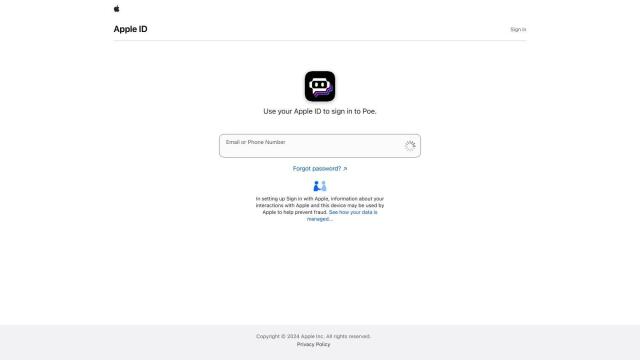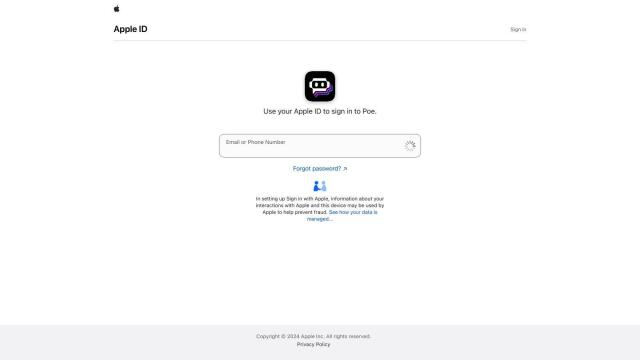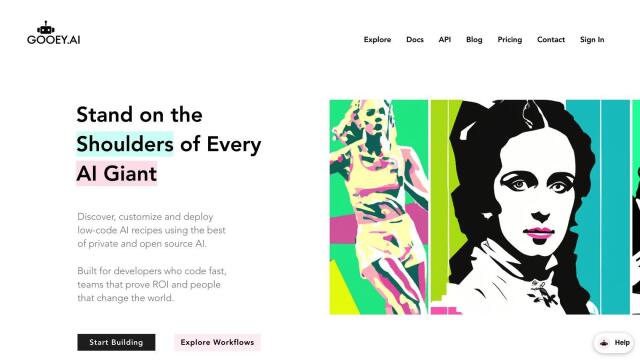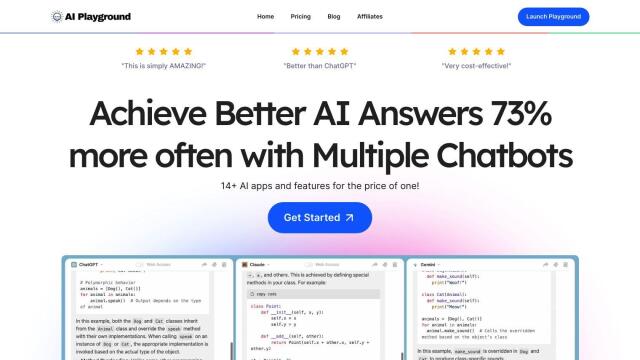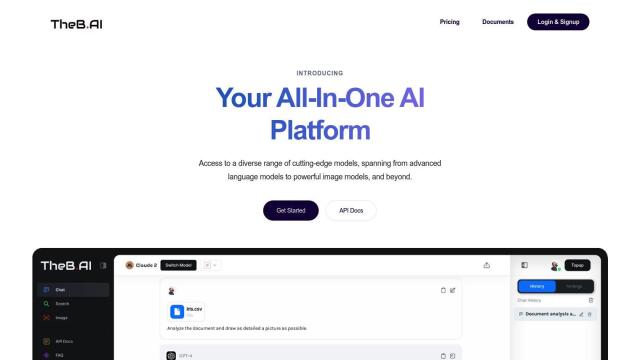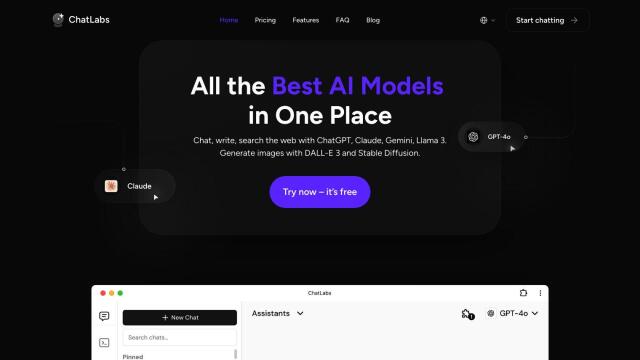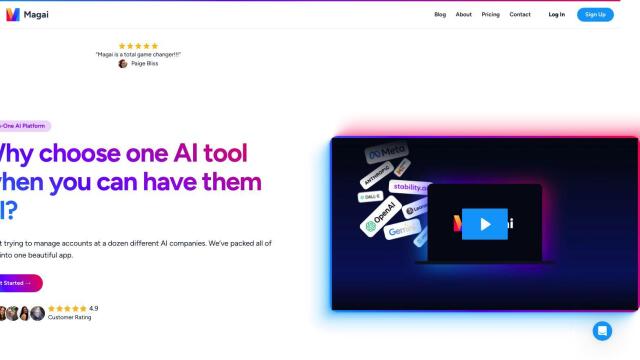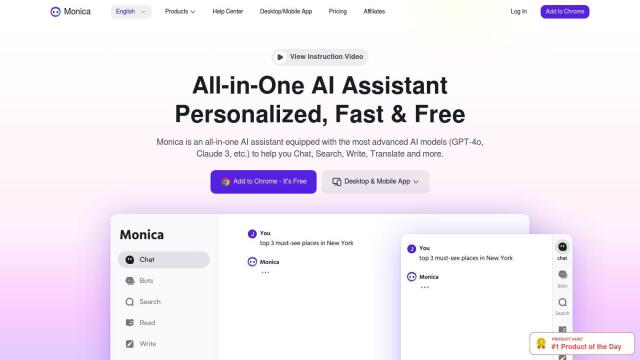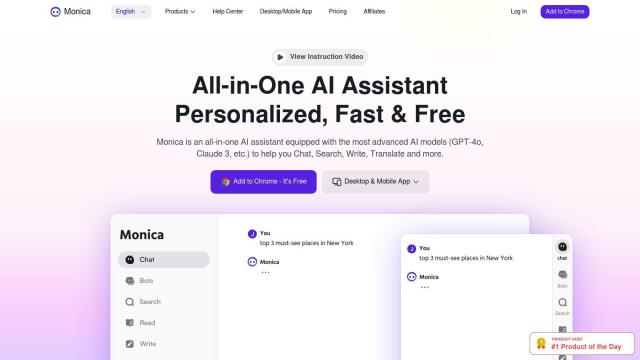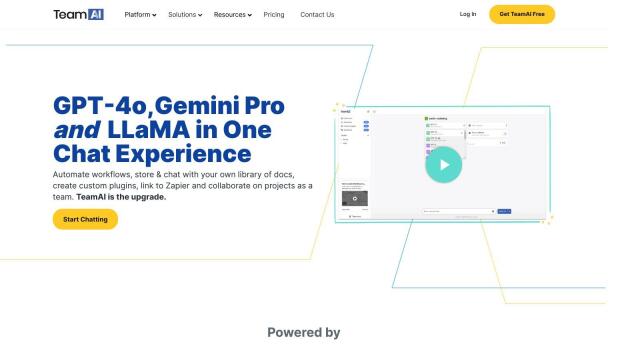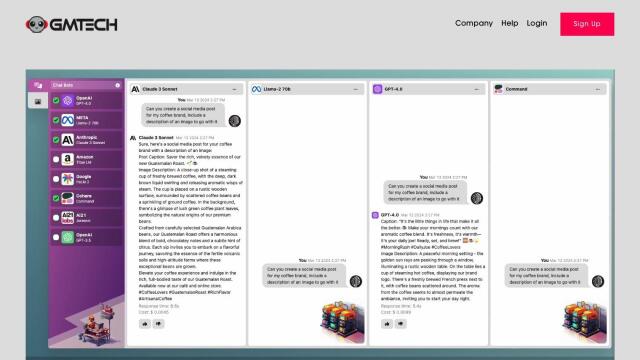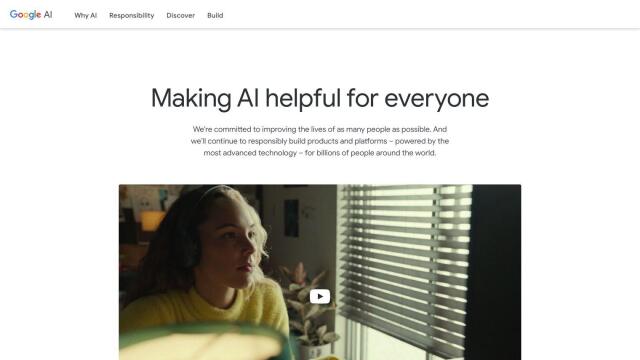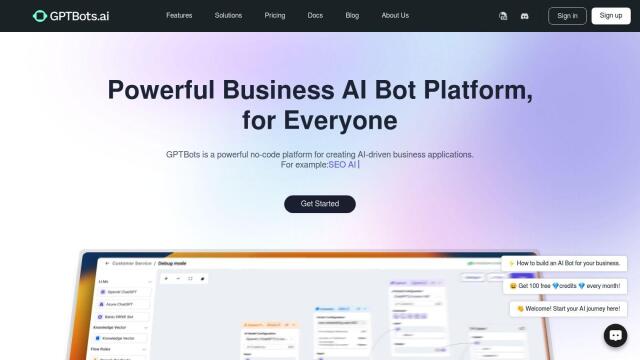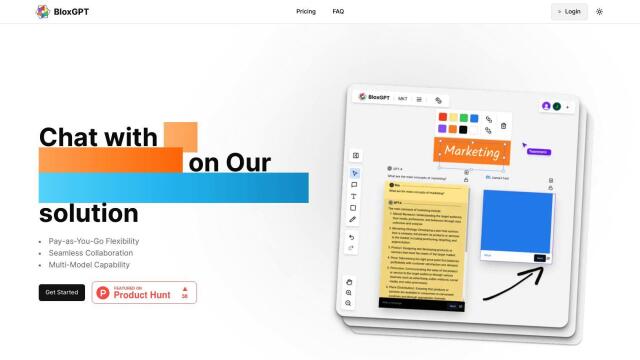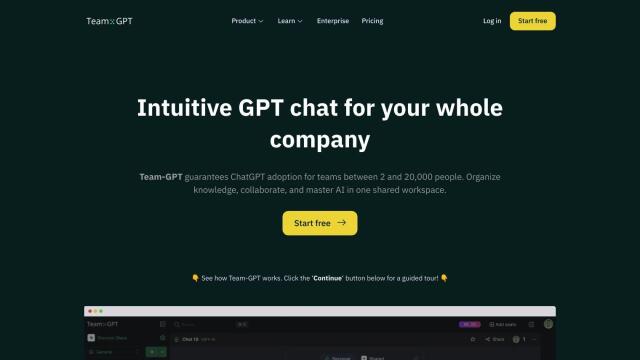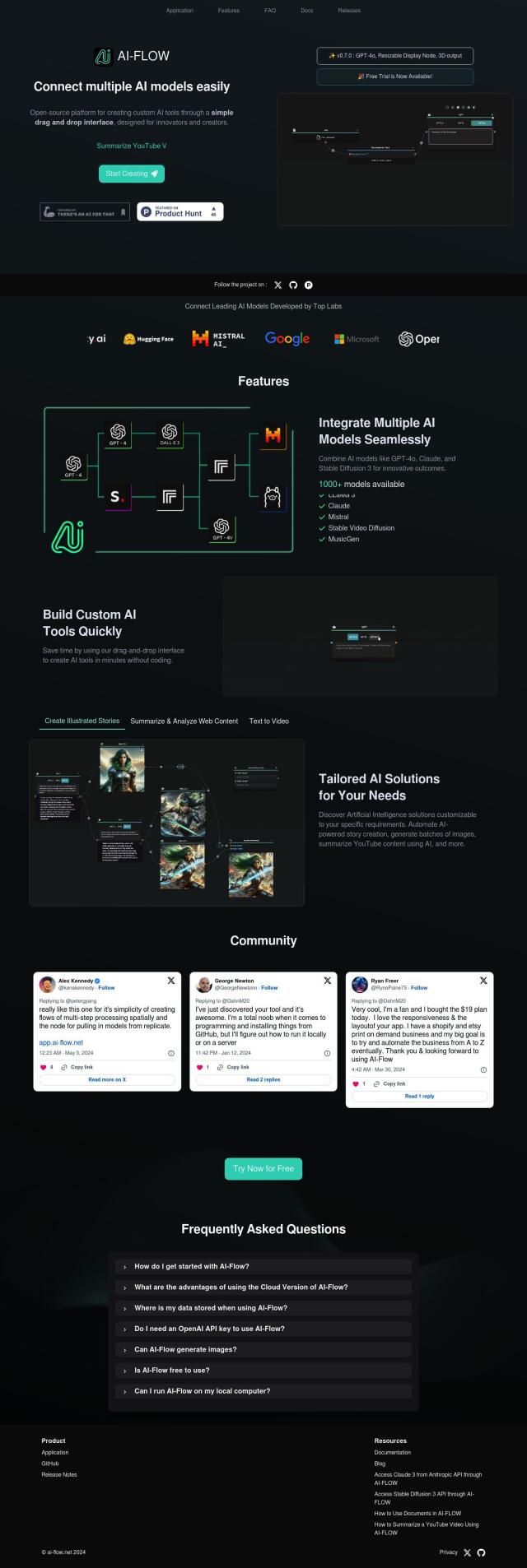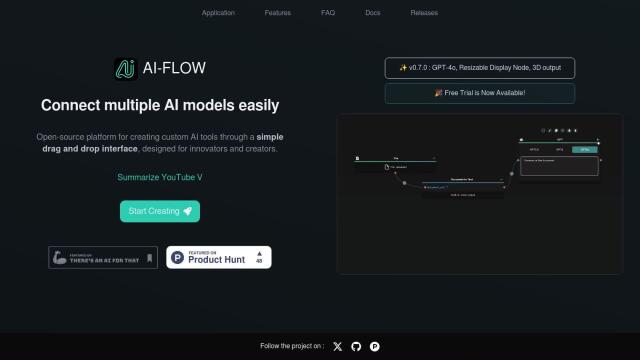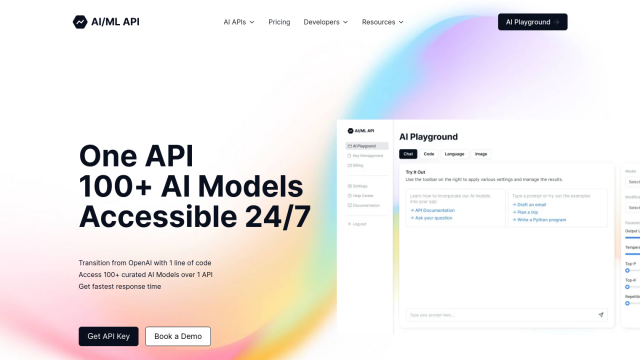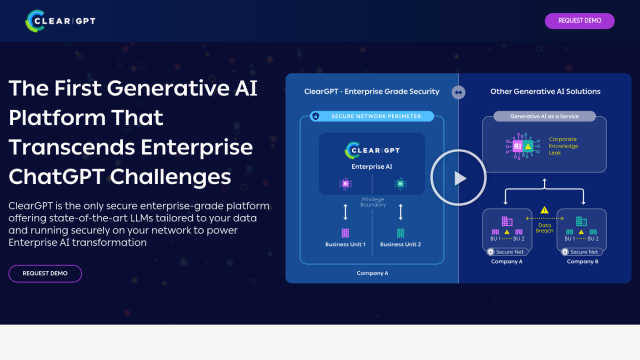Question: Can you suggest a tool that allows me to interact with various Large Language Models in one place, including GPT 3.5 and GPT 4?

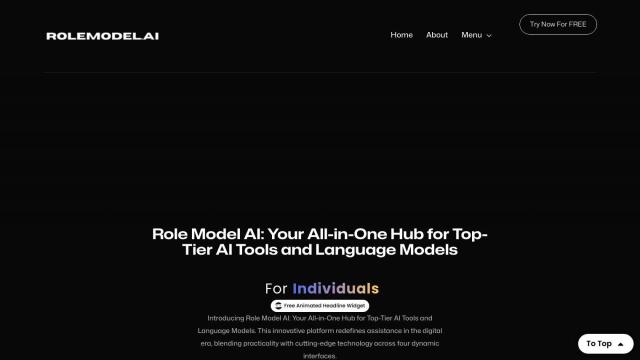
Role Model AI
If you want a single interface to interact with many Large Language Models, including GPT 3.5 and GPT 4, Role Model AI is a good option. The one-stop shop is designed to offer a personalized experience across voice, digital interface, 3D avatars, and gaming. It supports several models, including GPT 3.5, GPT 4, Grok AI, Claude, Google Gemini and others, and integrates with more than 50 generative tools. It can be used for music generation, image generation and video generation, as well as 3D environments for game development.


OmniGPT
Another top contender is OmniGPT. The single interface offers a range of AI models, including Claude 3, GPT 4o, GPT 4 Turbo and others. It can integrate with common apps like WhatsApp and Slack, supports end-to-end encryption, and offers image analysis and generation abilities. OmniGPT offers different pricing levels, including a free tier, so it's a good option for those who want to try out a few LLMs without breaking the bank.
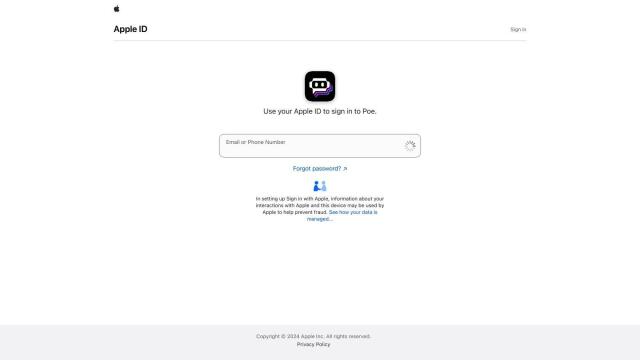
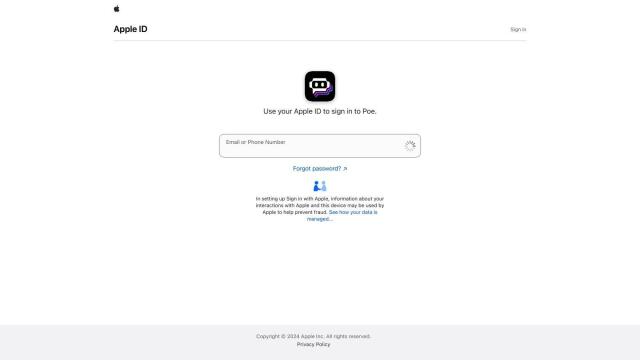
Poe
If you want a conversational AI interface, Poe lets you chat with models like GPT-4, GPT-3.5-Turbo, Claude, ChatGPT and Opus. Poe is geared for researchers and writers who need a quick way to tap into AI tools. It's got a conversational interface and supports multiple AI models, so it's a good option for anyone who wants to build AI into their workflow.
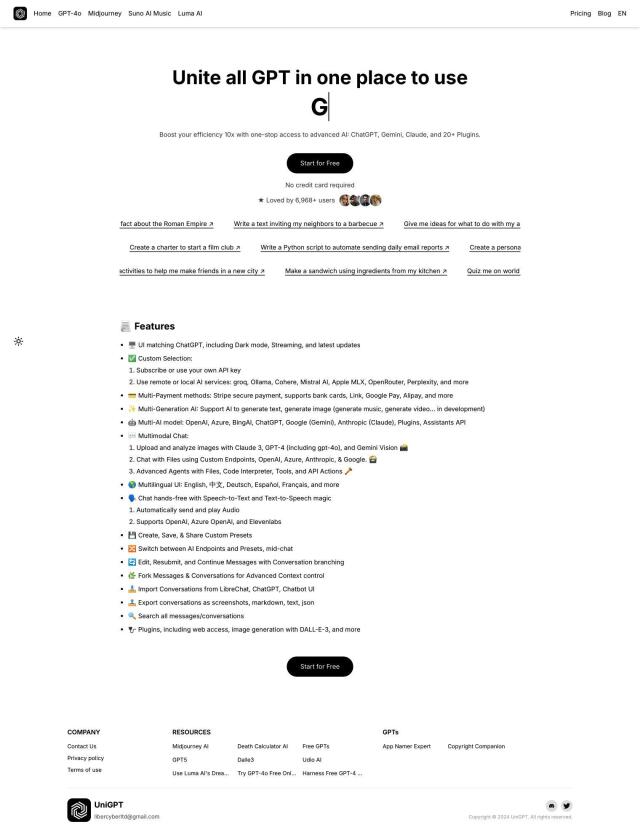
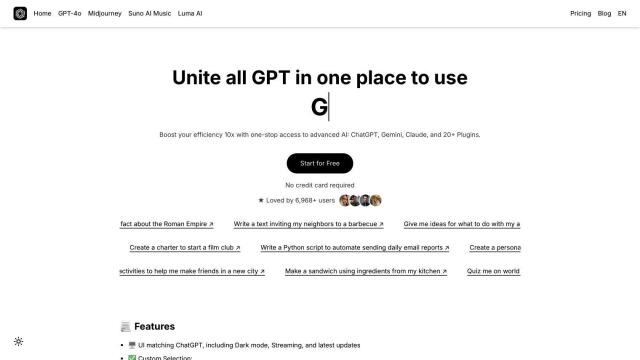
UniGPT
UniGPT is another unified interface for managing multiple large language models, including ChatGPT and Gemini. Its interface is easy to use and has a dark mode. UniGPT supports multiple AI models from multiple providers. It has multimodal chat abilities and can be used hands-free with speech-to-text and text-to-speech abilities, too.
